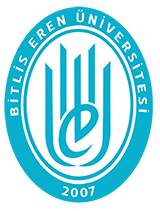WORK-LIFE BALANCE AND GENDER EQUALITY: OBSTACLES AND POSSIBILITIES FOR TURKISH WOMEN IN EDUCATION AND ACADEMICS
Abstract
Academic women expect equal opportunities for advancement and recognition in a supportive work environment. For women in academics, it's also crucial to have access to professional and personal development programmes that align with their specific career objectives. Additionally, studies have shown that academic women prioritise work-life balance and personal happiness over conventional notions of professional success. It can be challenging for female academics to balance the demands of their careers with their family responsibilities, so it's important to create policies that encourage schedule flexibility to accommodate personal and family obligations. Recognising and eliminating gender bias in the workplace is also essential. This entails eliminating ingrained biases, ensuring fair remuneration, and cultivating an inclusive culture that values a range of viewpoints and experiences. By addressing these issues, we can influence the culture that upholds power imbalances and gender gaps and help create a more encouraging work environment for female academics. Changing organisational barriers including male dominance, progression barriers, lack of mentorship and support and discrimination is also necessary to create a work environment that supports female academics. The only way to fully solve these issues is to pass legislation that values diversity and inclusiveness. This paper highlights the need to understand the nuanced perspectives of female academics and encourages further efforts to support and advance gender equality in higher education.
Collections

DSpace@BEU by Bitlis Eren University Institutional Repository is licensed under a Creative Commons Attribution-NonCommercial-NoDerivs 4.0 Unported License..













